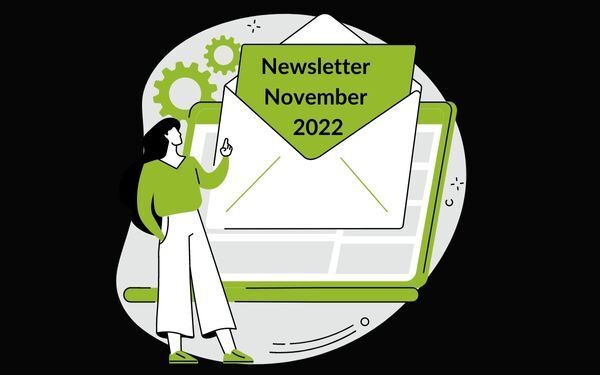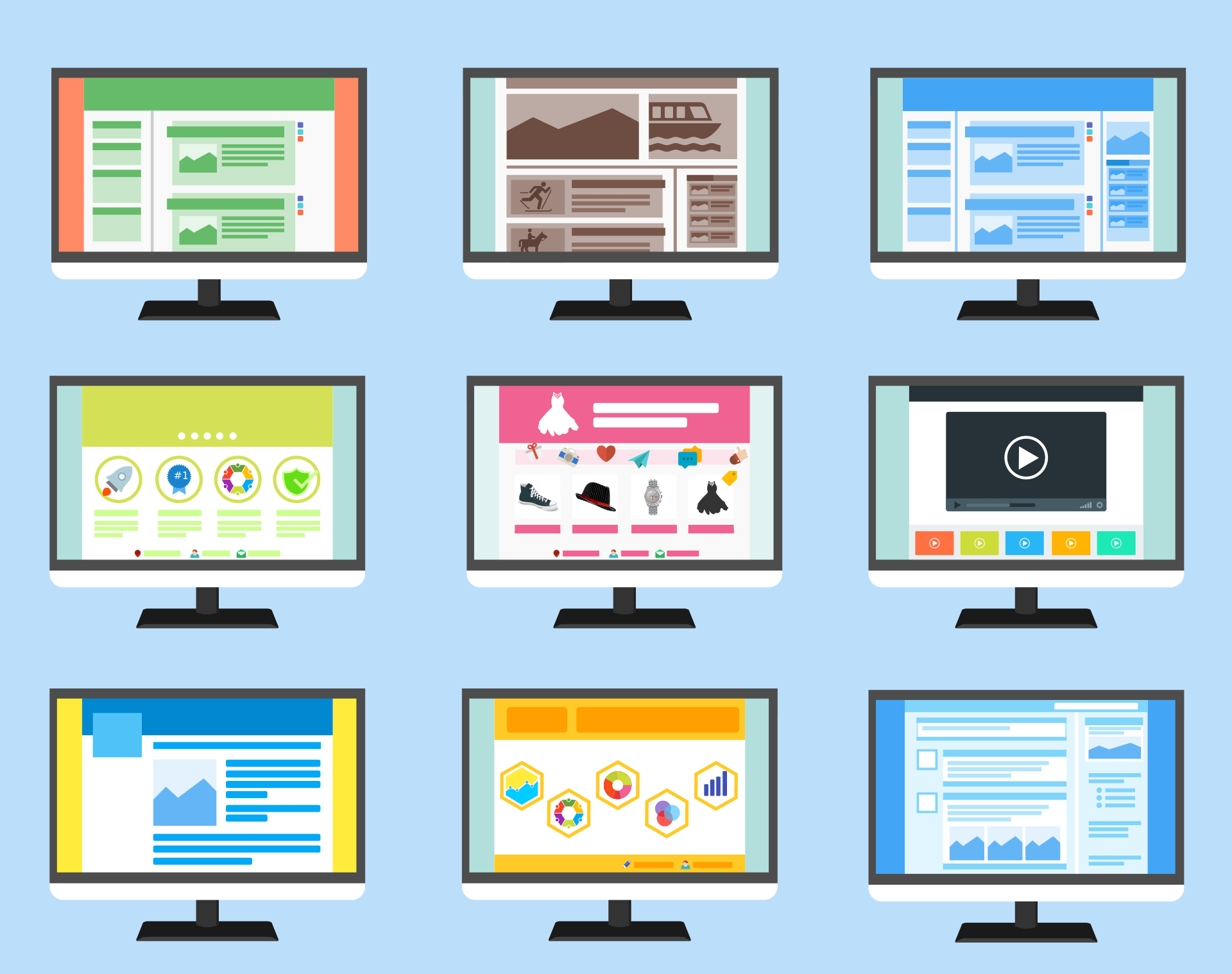Building a marketing campaign around big calendar events
Whatever your area of business, running targeted marketing campaigns is important for raising brand awareness and promoting your products. There can be many triggers for such campaigns; a new product, a recent award or accreditation, or to promote a sale or offer. However, there is another type of campaign that many businesses run: those based on notable dates, events, or occasions.
Running marketing campaigns around notable dates
There are key events throughout the year that most businesses recognise in some way or another. These include Christmas, Easter, Bank Holidays, Valentine’s Day, summer holidays, Halloween and the start of each of the four seasons. Different sectors will also have more specific industry occasions and events that may be relevant. Websites awarenessdays.com and timeanddate.com have useful lists of notable dates in the UK and internationally.
Benefits of date and occasion-based marketing campaigns
Running a marketing campaign around a significant date or occasion has a number of benefits. Notable dates can act as a useful hook for a sale, promotion or news piece. Major holidays and occasions attract significant interest on social media and increase the scope for users sharing your content. Many major holidays also have links to peaks in consumer spending e.g. purchasing Christmas presents, Easter eggs and flowers for Valentine’s Day.
Valentine’s Day as a marketing opportunity
One notable date that is in the calendars every year is Valentine’s Day. Positioned seven weeks after Christmas and before the cluster of spring and Easter Bank holidays, mid-February can feel like a bit of a slump. But for many businesses, Valentine’s Day represents a great opportunity for promotion. With the 14th February getting ever closer we look at what it takes to run a digital marketing campaign around a notable date.
The case for a digital marketing campaign for Valentine’s Day
The UK population spent £980m on Valentine’s Day in 2016. Of this, research by GlobalData indicates that £518m was spent on gifts and £313m on food and drink. For businesses in the hospitality and retail sectors, the opportunity is clear, but the reach of an event like Valentine’s Day is much more than just couples in love. According to Entrepreneur magazine, American consumers spent $681million on Valentine’s gifts for their pets in 2016 and 20% of gift searches on Bing were for gifts for friends.
Social media opportunities around Valentine’s Day
A digital marketing campaign around a significant date is a great way to reach new audiences on social media. There are over 10.3m posts onInstagram using the hashtag ‘Valentine’s Day’. Whilst on Twitter, by lateJanuary, there were already hundreds of new tweets per hour being tagged with#valentinesday.
How to run a Valentine’s Day digital marketing campaign
At its simplest, your Valentine’s Day campaign may be nothing more than a themed header on your website and some tailored social media posts. However, to really make the most of the opportunity, a multi-platform digital marketing campaign is likely to yield much better results.
There’s a lot to think about in running a successful digital marketing campaign and so we guide you through the key steps below:
1) Planning your digital marketing campaign
It’s important to clearly set out what you want to achieve from your campaign.
· Define your goals: Identify what you want to achieve from the campaign. This could be sales, growing your social media following, or mailing list sign-ups.American Express says that objectives should be specific and include actual figures .
· Identify your audiences: You probably already know who your customers are. But it’s important to think specifically about the campaign you want to run – do you want to target a subset of your existing customers for repeat business, or do you want to reach out to a new target market? Think carefully about geography, are you just targeting customers in your local area or city, e.g. Exeter or the wider county e.g. Devon.
2) Understanding the market
In advance of any marketing campaign, you should review what you know about the market.
· Understandy our competition: If possible identify what your competitors are doing for the same occasion, or at the very least have a clear understanding of what their product offer and audience is.
· Know your strengths, weaknesses and USP : Use the opportunity of a new marketing campaign to review your own business. A SWOT analysis (strengths, weaknesses, opportunities and threats) will help identify your unique selling point (USP) and where your campaign can make the biggest difference.
3) Define your message
· Decide what you want to say: Your campaign needs 1-2 key messages that you want to communicate to your audience.
· Consider your offer: As well as defining your message, decide how you will appeal to your audience. Are you offering them something they want like a discount, freebie or access to exclusive content?
4) Set a budget for your campaign
· Review the return potential : It’s helpful to return to your initial goals at this point and assess the likely return. Your budget should take account of the possible return and how much it may cost to achieve this.
· Use past campaigns as a benchmark: Unless it’s your first campaign, review previous campaigns for a guide to costs and be realistic about your budget.
5) Identify your communication channels
· Review existing channels: Making the most of what you already have is key to maximising your marketing budget; take stock of your communication assets including website and social media channels to see where you can run your campaign.
· Identify new channels: If you want to reach new audiences consider new avenues such as pay-per-click ads, guest blogging, newsletters and conventional press advertising streams.
6) Develop and test your campaign
· Produce your campaign materials: Depending on your campaign this could include compiling text, producing visuals, identifying keywords, and revamping your website.
· Test your campaign: Use staff, customers, or consumer panels to test the effectiveness of your campaign and revisit elements that don’t work.
7) Launch and monitor your campaign
· Launch your campaign: Going live with your campaign isn’t the end – a successful campaign should start conversations in the form of orders, enquiries and discussions on social media and you must be ready to engage.
· Review and measure: During and after your campaign measure the effectiveness of your approach and identify what you can learn for future campaigns.
How much time does it take to run a successful campaign?
How long it takes to plan and prepare your campaign depends a lot on the scale. Using research by HubSpot , industry eZine Iris estimate a content marketing strategy to take around 70 hours per month to implement.
This time is broken down as follows:
·Planning: 4 hours
·Blogging: 10 hours
·Producing premium & video content: 7 hours
·Social media: 15 hours
·Email marketing: 14 hours
·Analysing & reporting: 20 hours
Planning ahead: when to start your campaign
Returning to our Valentine’s Day campaign – like many notable dates this is a fixed occasion. If you’re not ready to go live in early February then you’re likely to miss the opportunity. Even a relatively small campaign can take as long as two to three months to plan and implement. For a launch on 7th February (one week before Valentine’s Day) that means investing around 70 hours a month from November in the year before to meet your deadline.
It’s never too late
Whilst you may have missed the opportunity for a major campaign for this Valentine’s Day, it’s never too late to do something around a notable date. A themed social media post on the day could take as little as a few minutes and still be beneficial in terms of raising your profile and linking to your products on social media. However, if you find you are regularly missing out on opportunities you may need to find an alternative solution.
When to seek external support
Many small businesses don’t have the time, resources or expertise to invest in digital marketing campaigns internally. Freeing up staff time to work on marketing can be a challenge, particularly for occasions likeValentine’s Day, which falls so soon after another busy period in the form of Christmas. For many smaller companies, this means that digital marketing campaigns can be rushed or don’t happen at all. When they do they’re often small scale and limited to one or two channels. If you’re struggling to find time for digital marketing then it could be time to call in external expertise.
Digital marketing strategy and campaigns in Exeter
At QuayClick, website design agency in Exeter, we specialise in running digital marketing campaigns, so whether you’re looking to promote a Valentine’s Day sale, build your social media presence or drive online sales, we can help. We follow a simple process that focuses on getting to know our clients and their business, so we can deliver the results they’re looking for.
What a QuayClick digital marketing campaign looks like
We work across a range of communication channels to deliver a comprehensive multi-platform campaign. Here’s what a typical strategy might include:
· Search Engine Optimisation (SEO): Auditing your SEO to see if your website is discoverable and that content is tailored to your audiences’ search terms.
· Pay-per-click: Developing search engine and browser adverts to direct customers to your website.
· Web design: Creating a landing page on your website for your campaign.
· Social media: Producing coordinated posts and bespoke content for use across all your social media channels, or temporary management of your accounts.
· Copywriting: Writing targeted blogposts around your campaign and producing print and web text.
· Email marketing: Creating appealing and targeted emails and e-newsletters to share news of your campaign with your subscribers.
If you’d like support with any aspect of digital marketing, either to develop a campaign around a notable date like Valentine’s Day, or for something more unique to your business please contact us in Exeter today.




QUICK LINKS
QC Newsletter sign-up
We will get back to you as soon as possible.
Please try again later.
All Rights Reserved | QuayClick Marketing Ltd
We’re a website design and digital marketing agency based in Exeter. We help businesses grow online and have over 20 years of experience in Web Design. We offer several inbound strategies, including paid search and SEO. In addition, our content team can help with copywriting and email campaigns.














